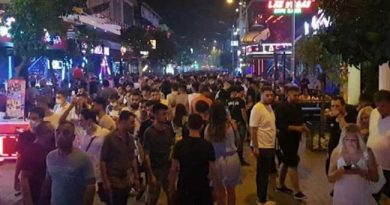Politics in Turkey: What will happen in economy after 2024 local elections?

Experts have made important statements regarding possible developments in the economy after the March 31 elections. It is likely that the tough economical measures implemented after the deputy elections in May 2023, will be intensified after the March 31 local elections.
As Turkey prepares to head to the polls once again, there is curiosity about what will happen in the Turkish economy after March 31. Experts such as experienced banker Kerim Rota, energy markets expert Mehmet Doğan, labor economics professor Aziz Çelik, and financial law professor Murat Batı have shared very important statements about possible developments in the Turkish economy starting from April 1.
1- PUBLIC INCREASES AND ADDITIONAL TIGHTENING
Kerim Rota stated that increases in prices were expected in items managed and directed by the government starting from April 1.
According to Rota, there will be price increases in many items, from tea to electricity, and from natural gas to transit fees.
Rota pointed out that these increases would push up April inflation and make the job difficult for the Central Bank (CBRT), suggesting that in this case, the CBRT may resort to tightening the current tight policy through interest rates and other tools.
Rota also mentioned that there might be installment and limit restrictions on credit card spending starting from April 1, emphasizing that adjustments should take into account low-income groups.
Rota emphasized that current policies were aimed at preventing inflation in Turkey from completely going out of control. He stated that with these policies, inflation could stabilize between 25-40%, but a more comprehensive program including fiscal policy was needed to achieve single-digit inflation.
2- TARIFF INCREASES IN ELECTRICITY AND NATURAL GAS
Mehmet Doğan expects gradual increases in natural gas and electricity for residential subscribers starting from April 1.
Under normal circumstances, there would be four years without elections, Doğan recalled, saying that the government was expected to make gradual increases in electricity and natural gas subsidies for residences during this period.
Doğan stated that the spot price for electricity was around 2,300 TL per megawatt-hour, but the residential tariff was around 480 TL. He also mentioned that the tariff for natural gas was approximately one-third of the import cost. Therefore, he emphasized that it was likely that there would be increases in residential tariffs after a long period without any increases.
3- FLEXIBLE EMPLOYMENT AND SEVERANCE PAY REFORM
Prof. Dr. Aziz Çelik reminded that the Medium-Term Program (MTP) foresaw the flexibilization of labor markets, the proliferation of flexible working forms, and the transformation of severance pay into individual retirement funds under complementary labor categories. He expects steps to be taken in these areas after the elections.
Çelik stated that before the elections, there was a relatively relaxed policy regarding the minimum wage, as well as salaries for civil servants and retirees. He expects belts to be tightened further after the elections, and single annual wage increases to be applied according to target inflation.
4- TAX INCREASES
Prof. Dr. Murat Batı expects some exemptions and exemptions from the tax expenditure list to be slightly reduced after the elections. However, he does not expect this pruning to be too much against capital.
Batı anticipates that tax advantages applied to the stock market and interest rates will be partially reduced, and taxes will be levied on income from some financial instruments, especially including cryptocurrencies.
He also suggests that there might be a transition to the application of the real price in real estate transactions, meaning that the real selling price would be determined based on an appraisal report, and taxes would be collected on that basis.
Batı does not expect a decrease in indirect tax items such as VAT and Special Consumption Tax (ÖTV), or measures such as tax corrections in favor of employees.
(SOURCE: SÖZCÜ)




